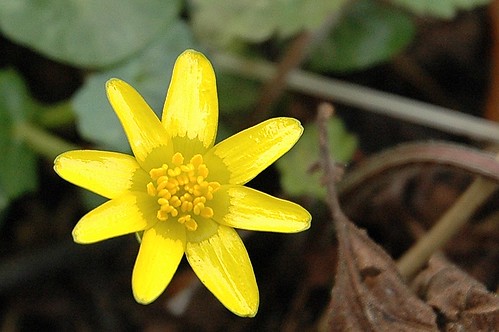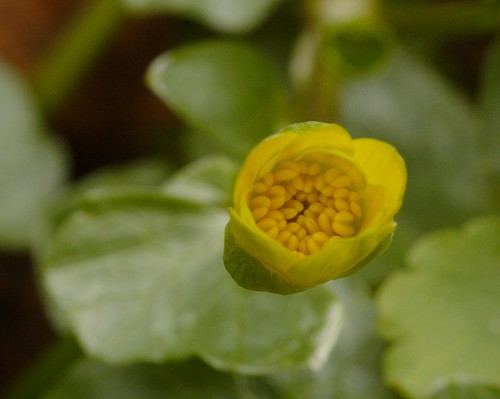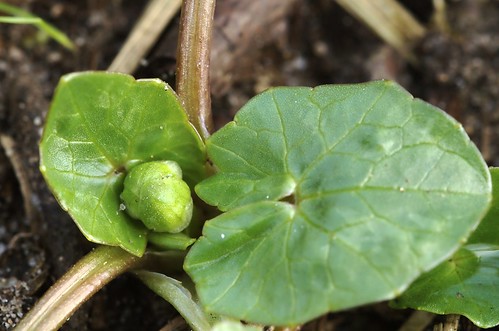(Fenologie: het bestuderen van jaarlijks terugkerende verschijnselen in de natuur. Het woord is afgeleid van het Grieks phainomai (verschijnen, zichtbaar worden), en geeft aan dat de fenologie vooral gericht is op de data dat bepaalde verschijnselen voor het eerst in dat jaar voorkomen. Voorbeelden van fenologie zijn het moment van bloei, bladontplooiing, zaad- en bladval, het eerste individu van een soort gezien, voor het eerst gehoord, eerste jong gezien.. )
(Phenology: the study of periodic plant and animal life cycle events and how these are influenced by seasonal and interannual variations in climate. The word is derived from the Greek phainomai (to appear, come into view) and indicates that phenology has been principally concerned with the dates of first occurrence of biological events in their annual cycle. Examples include the date of emergence of leaves and flowers, the first flight of butterflies and the first appearance of migratory birds, the date of leaf colouring and fall in deciduous trees, the dates of egg-laying of birds and amphibia.)
Voor veel mensen is het eerste sneeuwklokje of de eerste krokus de ultieme lentebode… Maar ik ervaar sneeuwklokjes en vroege krokussen toch eerder als winterbloeiers.
Het bloempje dat mij vertelt dat de lente nu echt niet meer ver is, is het speenkruid.
For many people, the first snowdrop or the first crocus is the real herald of spring… But I consider snowdrops and early flowering crocussen as mere winterflowers.
The flower that tells me that spring is soon to come, is lesser celandine.

In 2007 fotografeerde ik op 16 februari het eerst bloeiende speenkruid bloempje..
In 2007 I found the first flower of Lesser celandine on February 16th.

In 2008 vond ik er op 10 februari al.
In 2008, I found one on February 10th already!

Vorig jaar was het allemaal wat later, toen vond ik op 8 maart een bloempje dat begon open te komen…
Last year, everything was a little later, and on March 8th at last I found a flower that started to open its bud…

En in 2010… vond ik op 15 maart eindelijk, diep weggekropen, het eerste, nog stevig gesloten knopje.
And in 2010, after a long, long search, on March 15th I found the first bud, still tightly closed…
het komt! het komt! gisteren was’t zelfs al écht lente! 🙂
.-= laatste blogbericht: aardappels =-.
Ik heb gehoord dat de lente nu met rasse schreden dichterbij komt. We liggen meer dan een maand achter…
.-= laatste blogbericht: PHP =-.
Ook ik kijk smachtend uit naar de lente. We hebben al een paar mooie dagen gehad en komende dagen worden ook mooi, al snel gaat het weer regenen (wat ikzelf minder goed nieuws vind). Speenkruid is ook voor mij zo’n heerlijk voorjaaarsplantje dat ook in mijn tuin groeit.
Lovely diary of the beginning of spring from your point of view. I too love Lesser Celandines, particularly hundreds of them en masse. Every year I visit the botanic gardens in Glasnevin to see them in the arboretum. Its hard to tell when spring begins here also, particularly this year as the winter was so harsh. Who would blame the plants not wanting to pop their heads up? Aren’t they resilient though? Spring for a lot of people is – bird song, for others, its the bright mornings and the little stretch at the end of your working day, for others as you say, its snowdrops but for me it has to be seeing blue tits very very early in the morning – wonderous….I love them (not as much as the celandines though!)
Glasnevin is fantastic, I wish I could visit that garden every year, but I will visit it everytime I’m ‘in the neighbourhood’ 😉
fenotypisch, genotypisch … dat was alweer geleden van in het middelbaar 😉 dat er ook fenologen zijn die aan fenologie doen zeg…
.-= laatste blogbericht: dat was dan jammer … =-.
next time you’re in Dublin give me a buzz I’ll organise a tour with the curator (I’m sure if he has time he won’t mind)
.-= laatste blogbericht: The ‘Tulip Lady’ Anna Pavord – New York Botanical Garden =-.
Ik denk dat het ook veel te maken heeft met de klimaatverandering dat de lente eerder komt. En de andere vele veranderingen in de natuur.
Denny, kijk eens naar de data in mijn post… De voorbije twee jaar kwam de lente net later dan in 2007-2008.
Maar vier jaar is een veel te korte tijdspanne om fenologische conclusies te trekken hoor!
invitation accepted 😉
.-= laatste blogbericht: dat was dan jammer … =-.